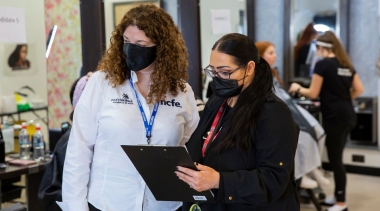I’m a Partner at EY where I lead our work for clients on skills, learning and training. We are supporting organisations to build the skilled workforces they need for the future, ensuring the UK continues to be an attractive destination for both domestic and international businesses. We see this as being part of our purpose, to build a better working world.
The Skills Taskforce for Global Britain is shining an important light on the links between skills and inward investment and I am delighted to be joining as a founding member. As the UK rebuilds after the COVID-19 pandemic, particularly in a post-Brexit world, ensuring the UK is able to access the skills it needs will be absolutely vital to the country’s growth.
EY’s annual UK Attractiveness Survey looks at the UK’s ability to compete in a global economy for foreign direct investment and access to skills is always cited as a key consideration by investors, 59% of companies find it difficult or very difficult to find the right staff.
This is a particularly important issue for growing sectors of the economy like digital technology, as well as for driving innovation in established sectors such as manufacturing and engineering. So if we want the UK economy to be at the forefront of new sectors like digital and cleantech, then we have to think about skills and the skills system. And skills become even more important when people are looking to invest outside of London. So if we want the UK to ‘level up’ and spread investment across all regions of the UK, we have to care about skills levels and the skills system.
The purpose of the Skills Taskforce is to change the zeitgeist and narrative in public and policy debate so that when we talk about foreign direct investment, we talk about skills. That means considering both the quality of the skills available to investors as well as the system that supports future skills development, from secondary to further and higher education, including apprenticeships and T-levels. The Taskforce will be bringing together insights from a whole range of different industry sectors in order to produce a series of recommendations for the stakeholders that will influence the UK’s success in this endeavour, from government departments and regional leaders to skills bodies and businesses. Ultimately, we want to create an evidence based roadmap to 2030 to help position the UK as a world-class skills economy.
I am delighted to be joining the other members of the Taskforce. This is a significant time for the UK economy and I hope the recommendations we develop will serve as a catalyst for change.





